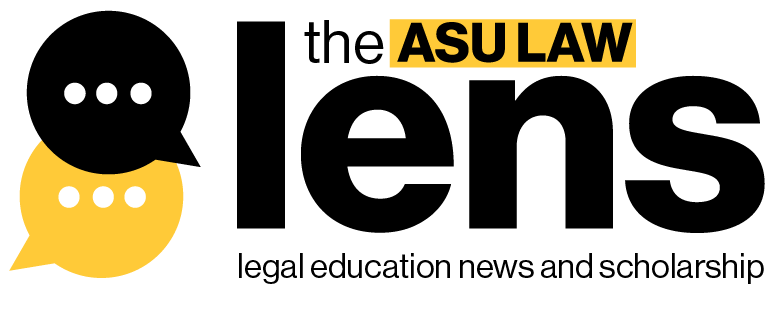
A lifeline in legal crisis: The Arizona Legal Center serves as a beacon of hope for the community
Every day, the Arizona Legal Center (ALC), a nonprofit housed at Sandra Day O’Connor College of Law at Arizona State University, receives more than 100 calls and emails from Arizona residents seeking legal guidance. These are life-changing moments such as an eviction notice, a custody battle or an urgent family dispute and for some, the ALC offers not only advice but a sense of hope.
The center assists a wide range of individuals, from homeless people and veterans to those with medium to high incomes. Regardless of a caller’s background, the ALC does not turn anyone away. It provides free legal counsel for those who need it most. However, in many instances, callers aren’t sure where to start. Some are ready to hire a private attorney but lack the understanding of what type of legal help they need. That’s where the ALC steps in.
Two full-time staff attorneys, 12 volunteer attorneys who rotate regularly and a network of additional volunteers serve as the backbone of the center. But it’s the students who truly drive the operation. Undergraduates and law students are the ones answering calls, conducting intakes and handling the research that leads to answers for callers. They are the first line of contact for those navigating overwhelming legal troubles.
Beverly Kosik, ALC’s program coordinator, watches students transform firsthand. She sees how the work they do directly impacts real lives. For many of these students, the ALC is their first exposure to the demands of being a lawyer. For the callers on the other end of the line, the impact is equally significant.
Bridget MacDonald, a second-year ASU Law student who volunteers at the center, remembers a particular call that made her realize how much of a difference the ALC makes. The client was a parent in the middle of a custody dispute and was terrified. They feared their former partner would lie in court, potentially threatening the custody of their children. The caller didn’t know what to do next.
MacDonald logged the details of the case and passed the information to an experienced family law attorney who provided guidance. The attorney explained what to expect at the hearing, when to speak and what evidence the client should gather.
“The client couldn’t afford a private lawyer but did not want that to be the reason they lost custody of their kids,” MacDonald said. “When I called the client back and shared the attorney’s advice, I could hear the relief in their voice.”
These moments of transformation highlight the core mission of the ALC. The center doesn’t just answer legal questions, it changes the course of people’s lives by providing them with the information they need to take action.
For many students working at the center, it’s a learning experience that goes beyond the classroom. They don’t just practice the law but they see the real impact of their work.
“The best learning comes from doing. When our students combine their classroom learning with real-world problem-solving for clients counting on them, the lessons learned and benefits gained last a lifetime,” said Assistant Dean of Legal Services Victoria Ames. “We are delighted to be a part of that process for both the students and the community.”
The ALC’s vital work is only possible through the generosity of donors. Donor support helps provide the resources necessary to continue offering free, high-quality legal guidance to those who need it most. Every donation allows the ALC to expand its reach and provide hope to even more Arizona residents facing life-changing legal challenges.
For more information about the ALC and to donate, visit arizonalegalcenter.org/support/.
Written by Crystal Jimenez
Stephen Breyer, associate justice of the U.S. Supreme Court from 1994 to 2022, has been named the 2026 recipient of the O’Connor Justice Prize.
Related links
For the media
Legal studies research
Legal experts list
Media resources
Faculty directory
Staff directory
For all press and media inquiries, please contact: Kourtney Kelley, Assistant Director of Communications
[email protected]
480-965-6197
-
Newsroom homepage
-
LENS Newsletter
-
ASU Law Talks
